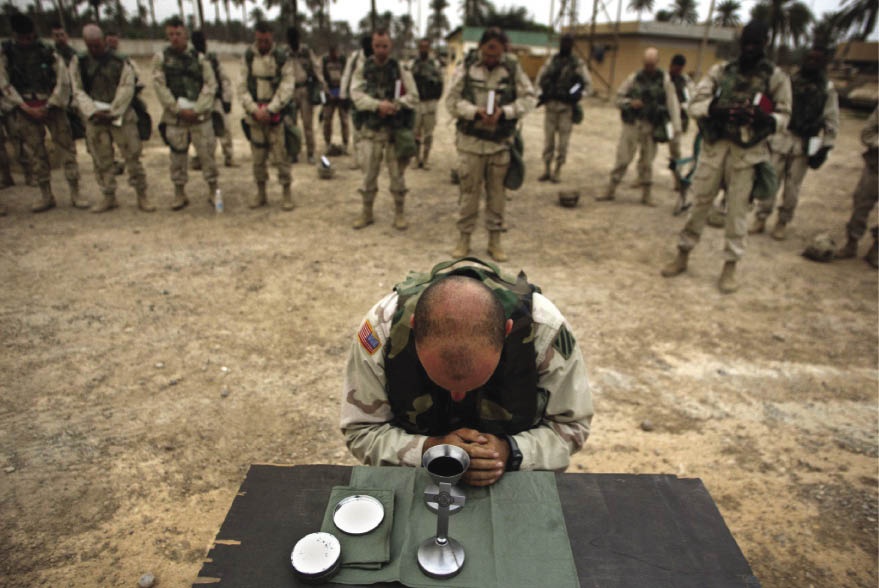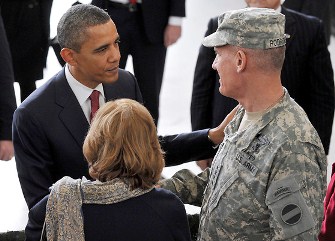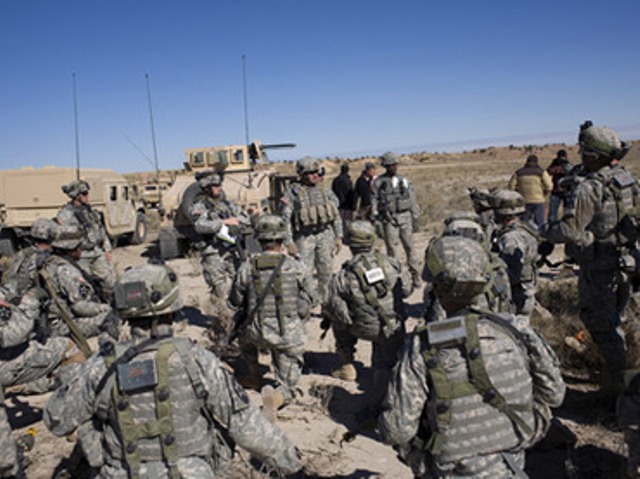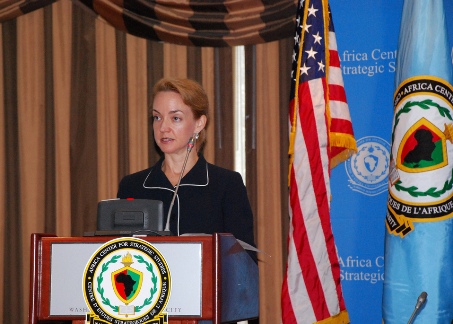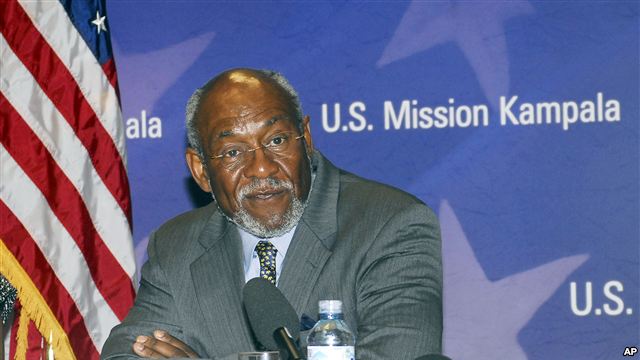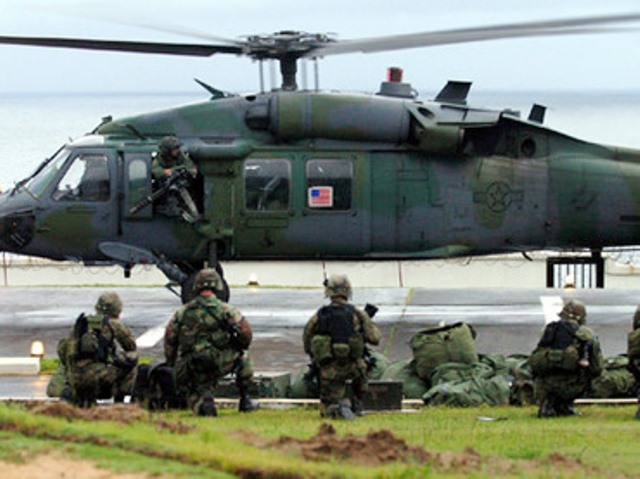
U.S. Marines arrive with equipment at the United States embassy in Monrovia, Liberia (Reuters / Luc Gnago)
By Don DeBar dondebar@optonline.net
Published: 24 December, 2012, 20:29
The United States Army will be deploying troops to nearly three-dozen African nations in the coming year.
Soldiers based out of Fort Riley, Kansas’ 2nd Brigade, 1st Infantry Division will begin training in March 2013 in order to prepare for a project that will send troops to as many as 35 African nations, the Associated Press reports. Citing a growing threat from extremist groups, including those with ties to al-Qaeda, the Department of Defense is hoping to install American soldiers overseas in order to prepare local troops there for any future crises as tensions escalate.
Earlier this month, DoD sources with insider knowledge told the Washington Post that US troops will soon be en route to the nation of Mali in order to thwart the emerging threat of Islamic extremists, including al-Qaeda aligned insurgents. With the latest news from the Pentagon, though, Mali will be just one of many African nations hosting US troops in the coming year. According to the AP’s update this week, soldiers will be sent overseas in the new year to assist only with training and equipping efforts, and are not necessarily permitted to participate in military operations. Should the Pentagon ask the troops to engage in battle, however, the secretary of defense could sign off on an order that would allow as much.
“If they want them for (military) operations, the brigade is our first sourcing solution because they’re prepared,” Gen. David Rodriguez, the head of U.S. Army Forces Command, tells the AP. “But that has to go back to the secretary of defense to get an execute order.” Additionally, the AP says that US troops will head specifically to Libya, Sudan, Algeria and Niger in order to prepare for any advances from al-Qaeda linked groups.
Americans will also train and equip forces in Kenya and Somalia, reportedly, in order to stand up to al-Shabab militants. Despite the troops being deployed to more than half of the countries in Africa, though, the AP reports that Uncle Sam will try to avoid giving the impression that the United States is leaving a substantial footprint across the continent.
“The challenge we have is to always understand the system in their country,” explains Rodriguez. “We’re not there to show them our system, we’re there to make their system work. Here is what their army looks like, and here is what we need to prepare them to do.” Sources speaking with the AP say that the United States has already prepared nearly 100 different exercises and training programs to conduct with African troops during the coming year.
PENTAGON PREPARES MILITARY OPERATION IN MALI
Published: 08 December, 2012, 00:39
It’s only December, but it looks like the Pentagon has all planned out how they’ll spend a good part of 2013. US officials now claim that the Defense Department is busy preparing a military operation in the nation of Mali.
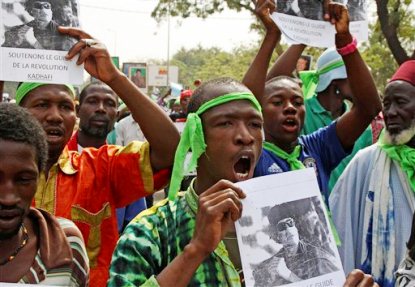
FILE – In this March 19, 2011 file photo, supporters of besieged Libyan leader Moammar Gadhafi cheer as they rally in support of him in the city of Bamako, Mali. While Western powers herald the death of Gadhafi, killed Thursday, Oct. 20, 2011, many Africans are mourning a man who poured billions of dollars of foreign investment into desperately poor countries. (AP Photo/Harouna Traore, File)
United States officials with knowledge of the matter tell the Washington Post that the Department of Defense and the US State Department will assist next year in a mission to overthrow Islamic extremists with ties to al-Qaeda who took under control a significant part of Mali, a small West African country that is still picking itself up after a coup this past March. Earlier this year, military officers displaced the administration of then-President Amandou Toumani Toure, claiming that he was reluctant in addressing the extremist issue himself. However since then the military junta failed to improve security in the country and retake control of the northern part of Mali captured by the Islamists.Now the US is claiming that it’s ready to help the military rulers, even though it may be a clear violation of American laws: the Pentagon cannot assist first-hand with people responsible for ousting a democratically elected leader. That doesn’t mean, however, that Washington won’t find a way to send support overseas.
According to testimonies from officials speaking to the Post, both the Pentagon and State Department will assist opposition to the terrorists by training, equipping and transporting troops to tackle what Sen. Christopher A. Coons (D-Delaware) has called “the largest territory controlled by Islamic extremists in the world.” Speaking on the record, though, the Pentagon’s deputy assistant secretary for Africa tells the paper that US influence might not end there.
“There’s plenty of other forms of information and intelligence that are circulating that give us enough insight for planning purposes,” the Defense Department’s Amanda J. Dory tells the Post this week. According to the paper, Dory also floated the possibility of US warplanes being deployed to North Arica to provide troops there with aerial protection. “We definitely don’t know how that would work out,” Dory says. In advance of next year’s expected war, the State Department and the Treasury announced this week that they have blacklisted two Mali extremist groups, the Movement for Unity and Jihad in West Africa, as terrorists officially in the eyes of Uncle Sam. The Associated Press reports that doing such will make any of those groups’ members ineligible to receive assistance from the US or conduct business, the start of crippling sanctions expected to continue until eventual military intervention.
Meanwhile, though, the wheels are indeed in motion in terms of starting to send US support towards Mali. On Wednesday, Johnnie Carson, assistant secretary for African Affairs under US President Barack Obama, said “We have sent military planners to [the Economic Community of West African States] to assist with the continued development and refinement of the plans for international intervention.” Carson acknowledged that US assistance will be needed in order to overthrow al-Qaeda in Islamic Maghreb, or AQIM, but added, “it must be African-led; it must be Malian-led.”
Testifying to Congress, Rep. Dory adds that AQIM and its affiliates “took over administration of northern cities and began imposing a harsh version of Sharia law” in Mali. “This expanded safe haven and control of territory allows al-Qaeda and affiliates to recruit supporters more easily and to export extremism.”

